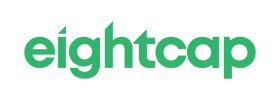The world of forex trading has witnessed significant advancements in recent years, with the introduction of cutting-edge trading platforms that have revolutionized the way traders interact with the markets. One such platform that has gained immense popularity among forex traders is MetaTrader 5 (MT5), developed by MetaQuotes Software Corp. Forex brokers supporting the platform have become the go-to choice for many traders, offering a wide range of features, tools, and functionalities that cater to the diverse needs of traders.
Below you can find a list with the best Forex brokers with MetaTrader 5:
Top 7 Forex Brokers with MT5
-
Fusion Markets
- Australia regulated broker
- MT4, MT5, TradingView, Ctrader
- Leverage up to 500
Trading InstrumentsDeposit Methods- Commodities CFDs
- Crypto CFDs
- Forex CFDs
- Indices CFDs
- Metals CFDs
- Stock CFDs
-
FP Markets
- Australia and CySEC regulated broker
- MT4/MT5, TradingView, Ctrader, Iress
- EUR/USD spread from 0.0 pips
Trading InstrumentsDeposit Methods- Commodities CFDs
- Crypto CFDs
- Energy CFDs
- Forex CFDs
- Indices CFDs
- Metals CFDs
- Stock CFDs
-
ActivTrades
- Winner of 20+ Global Awards
- MT4/MT5, TradingView
- Leverage up to 1:400
Trading InstrumentsDeposit Methods- Bonds CFDs
- Commodities CFDs
- Crypto CFDs
- ETF CFDs
- Forex CFDs
- Indices CFDs
- Share CFDs
-
Pepperstone
- Australia and CySEC regulated broker
- MT4/MT5, TradingView, Ctrader, Iress
- EUR/USD spread from 0.0 pips
Trading InstrumentsDeposit Methods- Commodities CFDs
- Crypto CFDs
- Energy CFDs
- Forex CFDs
- Indices CFDs
- Metals CFDs
- Stock CFDs
-
XM Group
- XM provides great trading experiences using MetaTrader 4 and MetaTrader 5, which are improved by personalized features.
- Zero commission accounts are available
- Top-tier regulation from CySEC, ASIC, FSC, and DFSA oversee XM's operations, assuring transparency and client safety.
Trading InstrumentsDeposit Methods- Bonds CFDs
- Commodities CFDs
- Crypto CFDs
- Energy CFDs
- ETF CFDs
- Forex CFDs
- Forex Options
- Index Options
- Indices CFDs
- Metals CFDs
- Share CFDs
- Stock CFDs
- Stock Options
- US Stock Options
-
Axi
- Raw spreads start from 0.0 pips
- Offers order execution faster than standard ECN model
- Axi Select Funded Trader Program offers funding up to $1 million
Trading InstrumentsDeposit Methods- Commodities CFDs
- Crypto CFDs
- Forex CFDs
- Indices CFDs
- Metals CFDs
- Stock CFDs
-
Eightcap
- Traders can enjoy competitive trading conditions through different account types
- Offers access to over 800 CFD markets through TradingView
- Platforms like MT4 and MT5 enable multi-device trading
Trading InstrumentsDeposit Methods- Commodities CFDs
- Crypto CFDs
- Forex CFDs
- Indices CFDs
- Share CFDs
Brokers Compared by Spread
| Brand | Commission per lot | |
|---|---|---|
| Fusion Markets | AVG 0.93 pips | $0 Classic Account, $4.50 round turn on Zero Account |
| FP Markets | AVG 1.2 pips | $0 Standard Account; $6 round turn on Pro Account |
| ActivTrades | AVG 0.5 pips | $0 |
| Pepperstone | AVG 1.1 pips | $0 (Standard Account), $7 round-turn (Razor Account, TradingView, MT4, MT5), $6 round-turn (Razor Account, cTrader) |
| XM Group | AVG 1.2 pips | $0 Ultra Low Micro and Ultra Low Standard Accounts; $3.50 per side XM Zero Account |
| Axi | AVG 1.2 pips | $0 on Standard Account; $7 round trip on Pro Account |
| Eightcap | AVG 1.1 pips | $0 on Standard and TradingView Accounts; $7 round turn on Raw Accounts |
FX Brokers Deposit Method Comparison
| Brand | Minimum deposit | |
|---|---|---|
| Fusion Markets | $0 | |
| FP Markets | $50 (AU$100) | |
| ActivTrades | $0 | |
| Pepperstone | $0 | |
| XM Group | $5 | |
| Axi | $0 | |
| Eightcap | $100 |
Brokers by Regulator
| Brand | Maximum leverage | |
|---|---|---|
| Fusion Markets | 1:500 (ASIC | Pro Account), 1:30 (ASIC | Retail Account), 1:500 (VFSC | Retail Account) | |
| FP Markets | 1:500 (CySEC | Pro Account), 1:30 (ASIC | Retail Account), 1:30 (CySEC | Retail Account), 1:500 (FSAS | Retail Account) | |
| ActivTrades | 1:400 (CMVM | Pro Account), 1:30 (CMVM | Retail Account), 1:1000 (FSC), 1:200 (SCB) | |
| Pepperstone | 1:500 (CySEC | Pro Account), 1:500 (SCB | Pro Account), 1:30 (ASIC | Retail Account), 1:30 (CySEC | Retail Account), 1:30 (DFSA | Retail Account), 1:30 (FCA | Retail Account), 1:200 (SCB | Retail Account) | |
| XM Group | 1:30 (CySEC | Retail Account), 1:1000 (IFSC | Retail Account) | |
| Axi | 1:500 (Elite Account), 1:400 (Pro Account), 1:30 (ASIC | Retail Account), 1:30 (CySEC | Retail Account), 1:30 (DFSA | Retail Account), 1:30 (FCA | Retail Account), 1:500 (SVGFSA) | |
| Eightcap | 1:30 (ASIC | Retail Account), 1:30 (CySEC | Retail Account), 1:30 (FCA | Retail Account), 1:500 (SCB | Retail Account) |
Forex Brokers Platform Availability
| Brand | FX pairs to trade | |
|---|---|---|
| Fusion Markets | cTrader, MetaTrader 4, MetaTrader 5, TradingView | |
| FP Markets | cTrader, TradingView | |
| ActivTrades | MetaTrader 4, MetaTrader 5, Proprietary Web, TradingView | |
| Pepperstone | MetaTrader 4, MetaTrader 5, Proprietary Mobile, Proprietary Web | |
| XM Group | MetaTrader 4, MetaTrader 4 MultiTerminal, MetaTrader 5, Proprietary Mobile, Proprietary Web | |
| Axi | MetaTrader 4 | |
| Eightcap | MetaTrader 4, MetaTrader 5, TradingView |
Comprehensive Comparison the Best Forex Brokers with MetaTrader 5
With its user-friendly interface, advanced charting capabilities, and automated trading features, MT5 has become the preferred platform for many forex traders. In this review, we will cover the basics of MT5 and the way forex traders can utilize the platform.
Development of MT5
The development of MetaTrader 5 (MT5) is a testament to the innovative spirit of MetaQuotes Software Corp. Released in 2010, MT5 was designed to address the limitations of its predecessor, MetaTrader 4 (MT4), and provide traders with a more advanced and feature-rich trading platform
The development of MT5 involved a thorough analysis of the trading needs of forex traders, with a focus on creating a platform that would provide faster execution, improved charting capabilities, and enhanced automated trading features. The platform’s launch was also driven by the need to support multiple asset classes, including currencies, commodities, and indices, making it a versatile trading platform. Over the years, MT5 has undergone significant updates and improvements, with the latest version offering a range of new features, including improved backtesting capabilities, enhanced security, and support for multiple programming languages.
The development of MT5 has been a continuous process, with MetaQuotes Software Corp. committed to providing traders with a platform that meets their evolving needs and expectations.
Interface of MT5
The interface of MetaTrader 5 (MT5) is designed to provide traders with a user-friendly and intuitive trading experience. The platform’s interface is characterized by a clean and clutter-free design, making it easy for traders to navigate and access various features and tools. The platform’s Trade tab in the Toolbox section provides traders with a quick overview of their trading account, including their balance, equity, and margin levels.
The charting interface is also highly customizable, allowing traders to create multiple charts and profiles, and adjust various settings, such as time zones, colors, and fonts. The platform’s interface also supports multiple languages, making it accessible to traders from diverse linguistic backgrounds. Additionally, the interface is highly responsive, allowing traders to quickly execute trades, monitor their positions, and adjust their trading strategies. The overall design of the MT5 interface is geared towards providing traders with a seamless and efficient trading experience, allowing them to focus on their trading decisions rather than navigating the platform.
Order Types Available in MT5
Users of MT5 are offered several order types available for different trading purposes and goals. Here are the order types accessible on the MT5 platform, along with their specifications and typical use cases:
-
Market Orders and Pending Orders
Depending on the execution type, MT5 orders can be classified as market orders and pending orders. A market order is an order to buy or sell a financial instrument at the current market price. The specific feature of the order is an instant execution at the current market price. Typically, traders use market orders when they want to enter a trade quickly, without worrying about the exact price. This is often the case when a trader wants to capitalize on a sudden market movement or when they need to close a position quickly.
A pendings order is an order with a delayed execution, often because it is waiting for a specific market condition to be met. The specific feature of this order type is the execution when the specified market condition is met. Typically, traders use pendings orders when they want to execute a trade under specific market conditions.
-
Pending Order Variations
Depending on their market analysis and trading goals, MT5 users are able to make different types of pending orders. Below, you can see the subcategories of pending orders and their specifications:
Limit Order: A limit order is an order to buy or sell a financial instrument at a specified price or better. The order is executed when the market price reaches the specified limit price. Usually, limit orders are placed when traders want to enter a trade at a specific price or better. For example, a trader might set a limit order to buy a currency pair when it falls to a certain support level, hoping to catch a rebound. Limit orders can be either Buy Limit and Sell Limit, depending on the position you want to take:
- Buy Limit Order: A buy limit order is an order to buy a financial instrument at a specified price or better. This order is executed when the market price falls to the specified buy limit price. Traders tend to use buy limit orders when they want to enter a long position at a specific price or better. For example, a trader might set a buy limit order to buy a currency pair when it falls to a certain support level, hoping to catch a rebound.
- Sell Limit Order: A sell limit order is an order to sell a financial instrument at a specified price or better. The order is executed when the market price rises to the specified sell limit price. Traders often use sell limit orders when they want to enter a short position at a specific price or better. For example, a trader might set a sell limit order to sell a currency pair when it rises to a certain resistance level, hoping to catch a reversal.
Stop Order: A stop order is an order to buy or sell a financial instrument when the market price reaches a specified stop price. This order is executed when the market price reaches the specified stop price. Stop orders are typically placed to limit traders’ potential losses or to lock in profits. For example, a trader might set a stop order to sell a forex pair when it falls to a certain price, to limit their losses if the trade doesn’t work out. Stop orders include Buy Stop and Sell Stop:
- Buy Stop Order: A buy stop order is an order to buy a financial instrument when the market price rises to a specified level. The order is executed when the market price reaches the specified buy stop price. Traders use buy stop orders when they want to enter a long position when the market is trending upward. A trader might set a buy stop order to buy a currency pair when it breaks out above a certain resistance level.
- Sell Stop Order: A sell stop order is an order to sell a financial instrument when the market price falls to a specified level. The order is executed when the market price reaches the specified sell stop price. Usually, traders may place stop orders when they want to enter a short position when the market is trending downward. A trader might set a sell stop order to sell a pair when it breaks down below a certain support level.
There is also the Stop-Limit Order, which is a combination of a stop order and a limit order. It is executed when the market price reaches the specified stop price, and then the trade is executed at the specified limit price or better. Typical use case: Traders use stop-limit orders when they want to limit their potential losses or lock in profits, while also specifying a maximum price they are willing to pay or a minimum price they are willing to sell at.
-
Other Order Types Available on MT5
Forex traders who utilize the MT5 platform will also have the chance to place Take Profit and Stop Loss orders, with both options prompting a close of an order when the respective condition of the order is met.
- Take Profit Order: A take profit order is an order to close a position when the market price reaches a specified profit target. The order is executed when the market price reaches the specified take profit value. Typically, traders place take profit orders to lock in profits when a trade is working in their favor. A trader might make a take profit order to close a long position when the price of a forex couple reaches a certain level, to lock in their profits.
- Stop Loss Order: A stop loss order is an order to close a position when the market price reaches a specified loss level. The order is executed when the market price reaches the stop loss price set by the trader. Usually, stop loss orders are used to limit traders’ potential losses when a trade is not working in their favor. For example, a stop loss order may be placed by a trader to close a long position when a pair’s price falls to a certain level, to limit one’s losses.
Features of MT5
MetaTrader 5 (MT5) is packed with a wide range of features that cater to the diverse needs of forex traders. One of the key features of MT5 is its advanced charting capabilities, which include a range of technical indicators, chart types, and time frames. The platform also supports automated trading, allowing traders to create and execute their own trading strategies using the MQL5 programming language.
The list below covers some of the main features of MT5:
- Advanced Charting: MT5 offers a range of chart types, including candlestick, bar, and line charts, as well as 38 technical indicators and 44 graphical objects.
- Automated Trading: MT5 allows traders to create and execute their own trading strategies using the MQL5 programming language, which is similar to C++.
- Multi-Asset Trading: MT5 supports trading in multiple asset classes, including currencies, commodities, indices, stocks, and futures.
- Multiple Order Types: MT5 supports multiple order types, including market orders, limit orders, stop-loss orders, and take-profit orders.
- Risk Management: MT5 provides traders with a range of risk management tools, including position sizing, stop-loss, and take-profit orders.
- Backtesting: MT5 allows traders to backtest their trading strategies using historical data, which helps to evaluate the performance of their strategies.
- Strategy Tester: MT5’s strategy tester allows traders to optimize and refine their trading strategies using a range of parameters, including trading hours, currency pairs, and risk management settings.
- Multi-Threading: MT5’s multi-threading capability allows traders to run multiple trading strategies simultaneously, which can help to improve trading performance.
- Alerts and Notifications: MT5 provides traders with customizable alerts and notifications, which can be set up to notify them of market events, trading opportunities, and account activity.
- Economic Calendar: MT5’s economic calendar provides traders with a schedule of upcoming economic events, which can help them to stay informed about market-moving news and events.
- News Feed: MT5’s news feed provides traders with real-time news and analysis from leading financial news sources, which can help them to stay informed about market developments and trends.
- MQL5 Community: MT5’s MQL5 community provides traders with access to a range of resources, including trading strategies, indicators, and expert advisors, which can be used to improve their trading performance.
- Virtual Private Server (VPS): MT5’s VPS allows traders to run their trading strategies 24/7, even when their computer is turned off, which can help to improve trading performance and reduce downtime.
MT5 Supported Devices
MetaTrader 5 (MT5) is a highly versatile trading platform that can be accessed from a range of devices, including desktop computers, laptops, mobile devices, and web browsers. The platform is available for download on Windows and Mac operating systems, allowing traders to install the platform on their desktop computers and laptops. Additionally, MT5 has a mobile version, which can be downloaded on Android and iOS devices, providing traders with the ability to trade on-the-go.
MT5 also has a web-based version, which can be accessed from any web browser, providing traders with a convenient and accessible way to trade from any location. The platform’s compatibility with multiple devices and operating systems makes it an ideal choice for traders who need to access their trading accounts from different locations and devices.
Why You Should Trust RationalFX
When it comes to making informed decisions about forex brokers, it's essential to rely on trustworthy sources. RationalFX, a company with over 20 years of experience since its founding in 2005, has established itself as a credible authority in the industry. With an impressive collection of over 2500 reviews on Trustpilot, boasting a score of 4.2, it's clear that Rational FX has built a reputation for providing reliable and unbiased information.
What sets Rational FX apart is its rigorous evaluation process, which considers over 30 different criteria when selecting forex brokers. This comprehensive approach ensures that every aspect of a broker's service is taken in consideration, including regulation, forex spreads, trading platforms, deposit methods, and reputation. With its wealth of experience, transparent review process, and outstanding customer feedback, Rational FX is a trusted source for anyone seeking reliable information on forex brokers. You can reach us via e-mail at feedback@rationalfx.com or contact us through our social media accounts here: Facebook, YouTube, or leave a feedback here.











